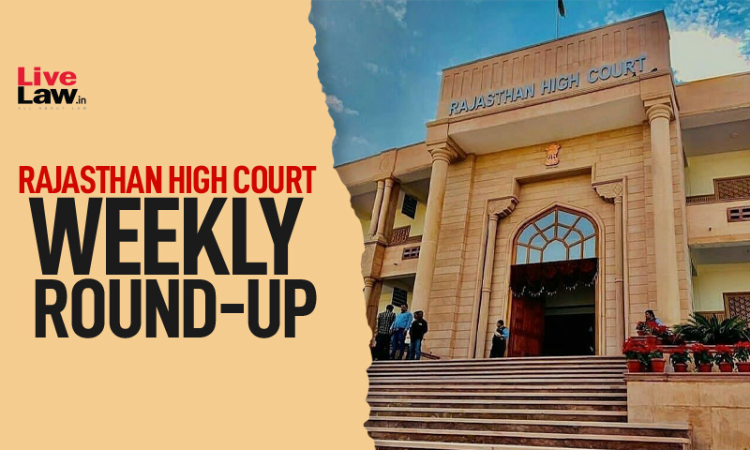Rajasthan High Court Weekly Roundup: January 17 to January 23, 2022
ANIRUDH VIJAY
24 Jan 2022 10:14 AM IST

Next Story
24 Jan 2022 10:14 AM IST
Judgments/ Orders of the Week Writ Petition Filed In Representative Capacity Without Proper Authorization Not Maintainable: Rajasthan High Court Case Title: Income- Tax Contigent Employees Union and Anr. v. Union Of India and Ors. Citation: 2022 LiveLaw (Raj) 16 The Rajasthan High Court has held that a writ petition filed in representative capacity without proper...
